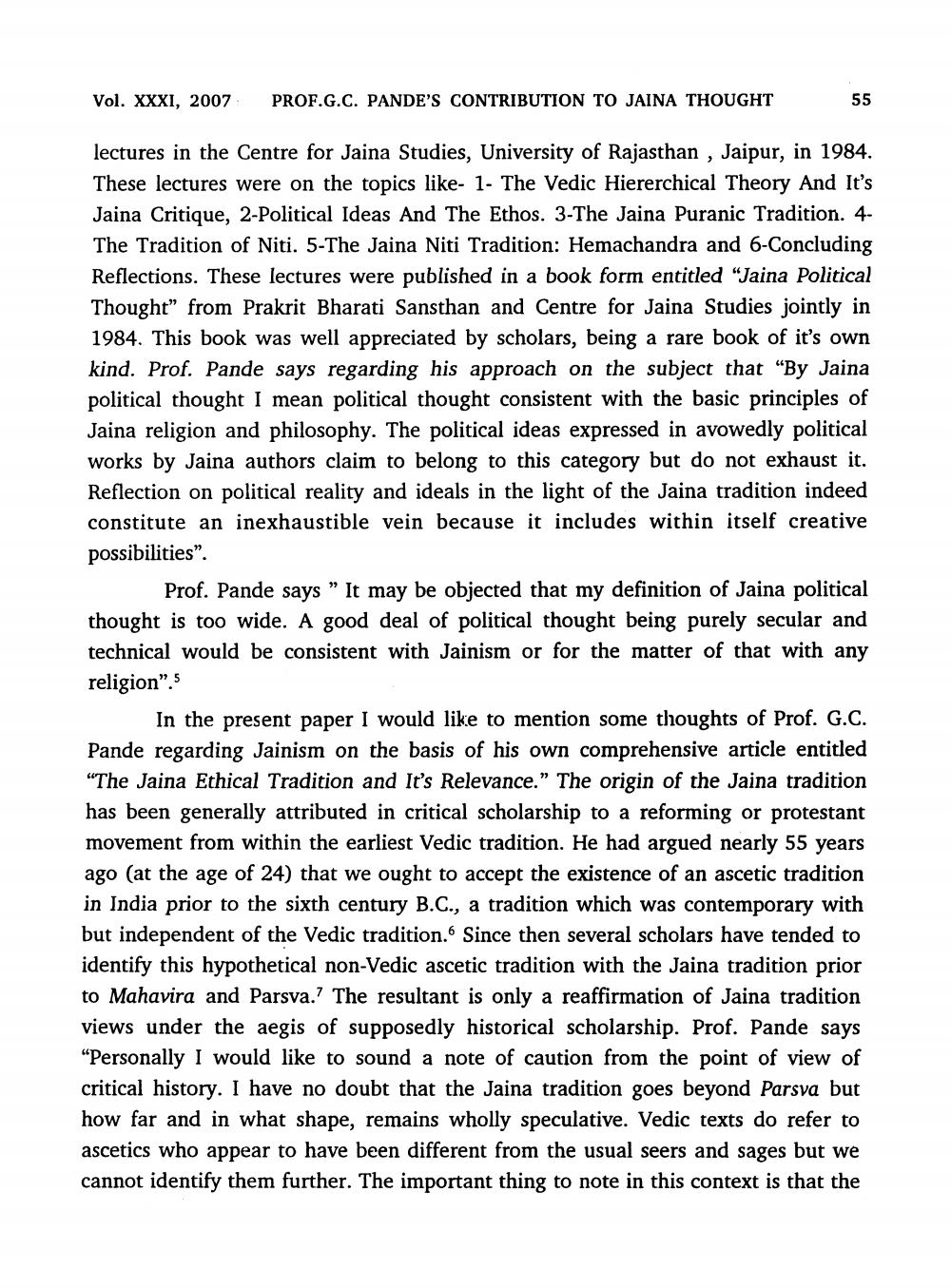________________
Vol. XXXI, 2007
PROF.G.C. PANDE'S CONTRIBUTION TO JAINA THOUGHT
55
lectures in the Centre for Jaina Studies, University of Rajasthan , Jaipur, in 1984. These lectures were on the topics like- 1- The Vedic Hiererchical Theory And It's Jaina Critique, 2-Political Ideas And The Ethos. 3-The Jaina Puranic Tradition. 4. The Tradition of Niti. 5-The Jaina Niti Tradition: Hemachandra and 6-Concluding Reflections. These lectures were published in a book form entitled "Jaina Political Thought" from Prakrit Bharati Sansthan and Centre for Jaina Studies jointly in 1984. This book was well appreciated by scholars, being a rare book of it's own kind. Prof. Pande says regarding his approach on the subject that “By Jaina political thought I mean political thought consistent with the basic principles of Jaina religion and philosophy. The political ideas expressed in avowedly political works by Jaina authors claim to belong to this category but do not exhaust it. Reflection on political reality and ideals in the light of the Jaina tradition indeed constitute an inexhaustible vein because it includes within itself creative possibilities".
Prof. Pande says " It may be objected that my definition of Jaina political thought is too wide. A good deal of political thought being purely secular and technical would be consistent with Jainism or for the matter of that with any religion”.5
In the present paper I would like to mention some thoughts of Prof. G.C. Pande regarding Jainism on the basis of his own comprehensive article entitled "The Jaina Ethical Tradition and It's Relevance." The origin of the Jaina tradition has been generally attributed in critical scholarship to a reforming or protestant movement from within the earliest Vedic tradition. He had argued nearly 55 years ago (at the age of 24) that we ought to accept the existence of an ascetic tradition in India prior to the sixth century B.C., a tradition which was contemporary with but independent of the Vedic tradition. Since then several scholars have tended to identify this hypothetical non-Vedic ascetic tradition with the Jaina tradition prior to Mahavira and Parsva.? The resultant is only a reaffirmation of Jaina tradition views under the aegis of supposedly historical scholarship. Prof. Pande says “Personally I would like to sound a note of caution from the point of view of critical history. I have no doubt that the Jaina tradition goes beyond Parsva but how far and in what shape, remains wholly speculative. Vedic texts do refer to ascetics who appear to have been different from the usual seers and sages but we cannot identify them further. The important thing to note in this context is that the




